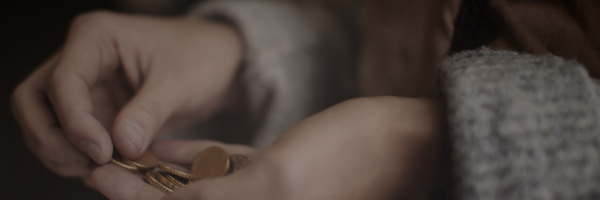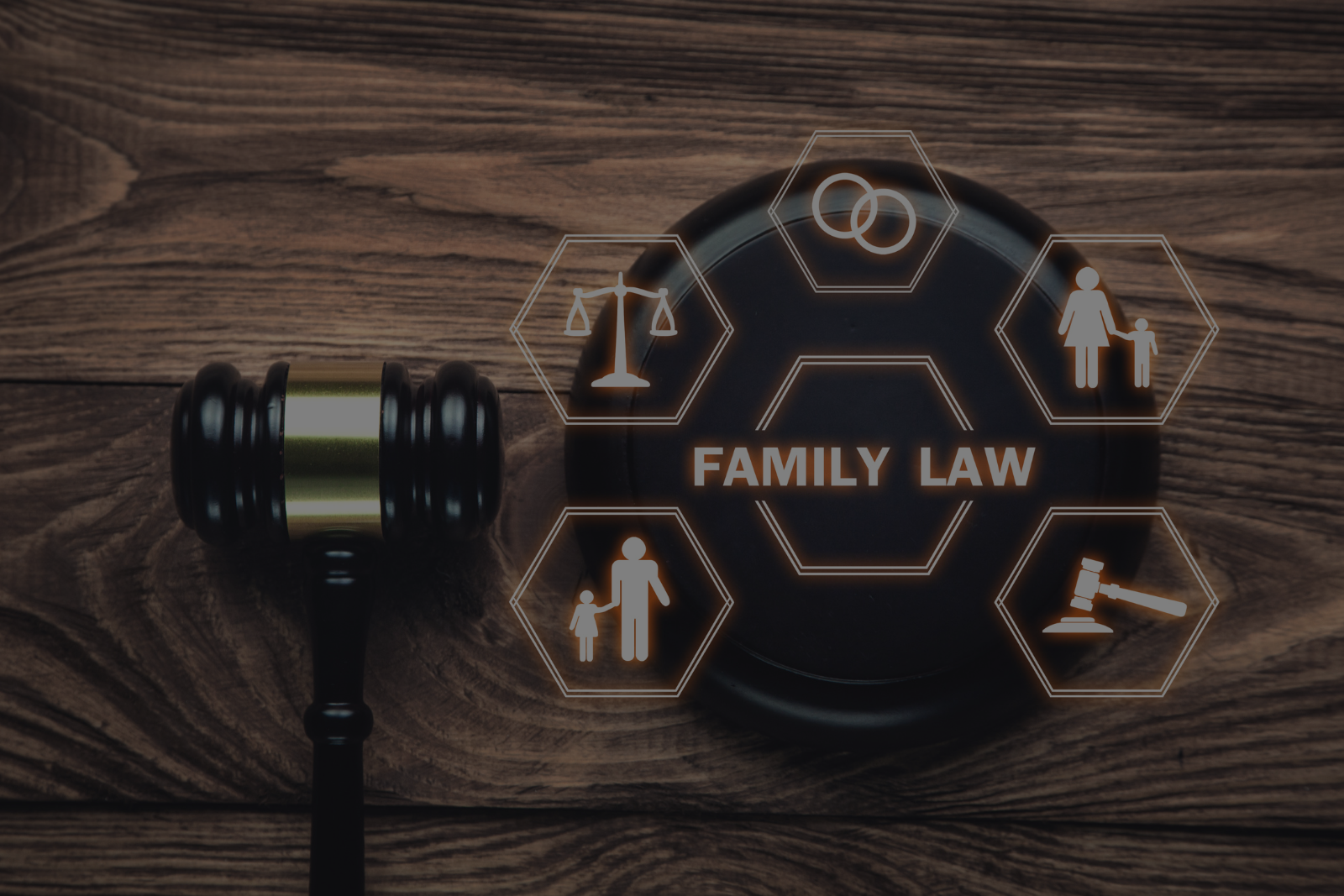What is financial abuse?
Financial abuse is one of the most manipulative forms of domestic abuse and happens when someone is excluded from financial decision-making or restricted from accessing money to enable them to support themselves or their children.
It often – due to its coercive and controlling nature – occurs alongside other forms of abuse, such as physical violence, emotional abuse, and sexual abuse.
While it is not gender-specific, statistically, women appear to be represented far greater as victims as compared to men. In fact, a recent study¹ found that the difficulties of obtaining financial independence represents one of the most significant obstacles for women seeking to leave abusive relationships.
Financial abuse can take on many forms and look different for each victim. Often, the behaviour can be quite subtle. Examples can include:
- stopping a partner from studying or working
- forcing a partner to sign over assets or taking out loans in the partner’s name
- forcing a partner to pay for things that they do not want or need
- pressuring a partner to give them or another person money
- a partner uses controlling or coercive behaviour to take their partner’s wages or government benefits and pays back to them an allowance
- fraudulently taking out credit or selling assets by forging their partner’s signature and /or hiding sale proceeds of assets either offshore or with third parties
- a partner taking control of a joint bank account or monitoring what the other partner spends and / or where permission has to be sought to buy certain things.
Cultural expectations can also mean it affects families differently.
For example, while a partner sending money to their parents overseas might be perceived as an act of respect born out of obligation, it may have implications in family law. When a person sends all or the majority of their money and some of their partner’s money to another family member without consulting their partner, these remittances could be seen as being financially abusive by depriving their partner access to or benefitting from that money.
Financial abuse amounts to a form of family violence. While all types of abuse can leave emotional, physical and psychological scars, financial abuse has the added consequence of leaving someone broke, in debt, or in extreme cases, homeless.
What does a healthy financial relationship look like?
While every relationship is different, a healthy financial relationship is built on communication, mutual respect and honesty. There is an equal balance of power where both parties have access to financial statements, negotiate joint financial goals, make financial decisions together and both have access to knowledge about the other person’s money and finances. There is no need to be secretive about finances or hide things away from the other person.
It is common in some families – especially those with children – for one person to take on the role of managing the finances while the other person takes on the responsibilities of managing the household (as an example). But that doesn’t necessarily mean it is financial abuse. It’s when one person becomes controlling and secretive when it comes to finances or dismissive of the other person when they ask about money, that it can be considered to be financial abuse.
How do I know if I am in a financially abusive relationship?
When controlling behaviour around finances becomes a pattern, that is a sign of abuse.
It could start with something simple like a request for a small loan of money. When it becomes a pattern as opposed to a one-off — there is an imbalance. If a request makes you feel uncomfortable, do not ignore that gut instinct.
In speaking with our Sydney family lawyers, those who have experienced financial abuse, say the other partner:
- prevented them from getting a job or going to work against their will
- pressured them to either stop spending or stop earning their own money
- refused to pay child support or help with childcare costs
- controlled how household income was spent, monitored their spending or ask for receipts to show all purchases
- denied them access to their own money or needed to ask for money for household and basic living them for basic expenses
- prevented them from contributing to the household income
- asked them to perform tasks or favours in exchange for money
- forced them to take out Loans, mortgages, credit cards and accounts only in their name or for somebody else, and this made them feel powerless and trapped
- kept the family’s finances secret and/or never allowed any discussions to be had about finances, income and budgets. Decisions were made without their input.
- ignored their opinion on major financial decisions
- pressured them to work in a family business without pay
- made them feel fearful
- caused the financial abuse to be experienced with other forms of abuse
- showed subtle changes in behaviour, which then progressed over time
- made them feel “stupid” or incompetent.
Financial abuse can exhibit itself in a relationship in so many different ways. So, how do you know if you are in a financially abusive relationship? Consider the following hypothetical scenarios:
SCENARIO 1: “I can’t get access to bank accounts.”

After Covid-19, Person A lost their job. They were unable to access any government benefits and did not have a bank account in their name or a joint account. At this time, Person B (who is in a relationship with Person A) gave Person A, a supplementary bank card to access their account to buy groceries. Person A had no other access to cash or any other credit cards. Over the course of a three-month period, every time Person A and Person B had an argument, Person B took the bank card from Person A meaning Person A was unable to buy groceries or fuel until such time as Person B decided they could.
SCENARIO 2: “I’ve been restricted from going back to work full-time.”

Person C is a Teacher and in a relationship with Person D. For many years, Person D was a stay-at-home- parent to care for the couple’s three young children. Once the youngest child started school, Person D decided to return to work as a General Practitioner. Person C told Person D, “you can only work two days a week.” Person D was scared to say no to Person C. Person D returned to work part-time earning less than Person C, and therefore, did not have financial freedom to make decisions based on their limited income.
If you suspect you are in a financially abusive relationship, seeking expert advice from a Sydney family lawyer can help you to better understand what your rights are and what you can do to protect yourself.
The link between financial abuse, family law and criminal law
Unfortunately, in many cases where there is financial abuse in a relationship, there may be other types of abuse present such as emotional abuse, sexual abuse or physical abuse.
Depending on the type and scale of abuse present, they can either be treated under the family law courts or as a criminal law case (or possible under both) – depending on whether the financial abuse constitutes breaking the law and to what extent.
Crossovers can occur, for example, if a victim of family violence has been encouraged by the perpetrator to defraud Centrelink, and that, having done so, the perpetrator uses the offence to control them.
It is important to note that this type of behaviour could constitute criminal offences. For example, under social security legislation as well as the Criminal Code Act 1995 (Cth) relating to fraudulent conduct—such as obtaining a financial advantage by deception or making false or misleading statements in applications seeking finance.
That’s not to say that charges would be bought against the person being persuaded to commit the offence, but it’s important to be aware of the potential for these issues to occur and to know your rights under the law.
We recommend speaking to one of our Sydney family lawyers as soon as possible for proper legal advice on your protective rights to silence and how best to deal with these types of situations.
There is also legislation in every Australian state and territory, allowing individuals to apply for a restraining order that is designed to protect a person from various types of abuse, such as physical, psychological, emotional, sexual and financial abuse.
See “Red alert” in family law matters for further information.
Getting help
Recognising there is a problem is the first step to removing yourself from a financially abusive relationship. Sometimes this can be a very difficult thing to do. Due to the controlling, manipulative and secretive nature of financial abuse, it can leave a victim feeling trapped and powerless. Often, it’s not uncovered well into the relationship. It’s important to know that if you’re in this situation, you’re not alone. It is very common and there is help available.
If you’re a victim of financial abuse or you’re worried about someone close to you who is, you can call 1800RESPECT or enquire online to chat to a counsellor. The National Debt Helpline also offers free financial counselling.
If you want to explore your legal options, take protective financial measures or issue family law proceedings, consult one of our Sydney family lawyers for a confidential no-obligation consultation on (02) 9262 4003 and we can walk you through your options and guide you to the best path that fits your situation.
Other useful resources or support services are set out below:
Help for families affected by relationship or separation issues | Family Relationship Advice Line |
Crisis support | Lifeline |
Family counselling, mediation and dispute resolution services | Relationships Australia |
Elder abuse victim support | Compass Note: this number redirects you to the phone line in your state or territory. Operating hours and services vary. |
State and territory elder abuse victim resource centres | My Aged Care |
Advocacy and advice for older people | Older Persons Advocacy Network Note: this number redirects you to the Older Persons Advocacy Network organisation in your state or territory. |
Dementia information and support | Dementia Australia |
Help to get back on your feet | Good Shepherd Australia Financial Independence Hub |
¹ Camilleri, Oliver,Corrie,Tanya &Moore,Shorna, 2015, ‘Restoring Financial Safety: Legal Responses to Economic Abuse’, Good Shepherd Australia New Zealand and Wyndham Legal Service Inc.
What to do when you've uncovered financial abuse in your relationship
Discovering financial abuse in a relationship can be incredibly devastating and, in some cases, can signal the end of your relationship.
Our Sydney family lawyers often hear clients in family law matters remark that when looking back over things, they have come to realise the relationship was actually finished at the exact time when they worked out an asset was being hidden from them.
In this next article, we will explore what financial disclosure is and why it’s so important in family law cases, the steps to take if you’ve uncovered financial abuse in your relationship and want to issue separation proceedings, along with protective financial measures you can take out before entering a new relationship – including a ‘Binding Financial Agreement’ (otherwise known as a pre-nuptial agreement).
The content of this article is intended as a general guide to the subject matter. For specific legal advice about your individual circumstances, please contact our experienced lawyers.
Karissa is an integral part of Ivy Law Group’s Family Law team, and draws on her commercial law background to take a pragmatic and strategic approach to family law matters.
She capably helps clients in negotiating fair outcomes in family law matters including property settlements and / or parenting matters.




